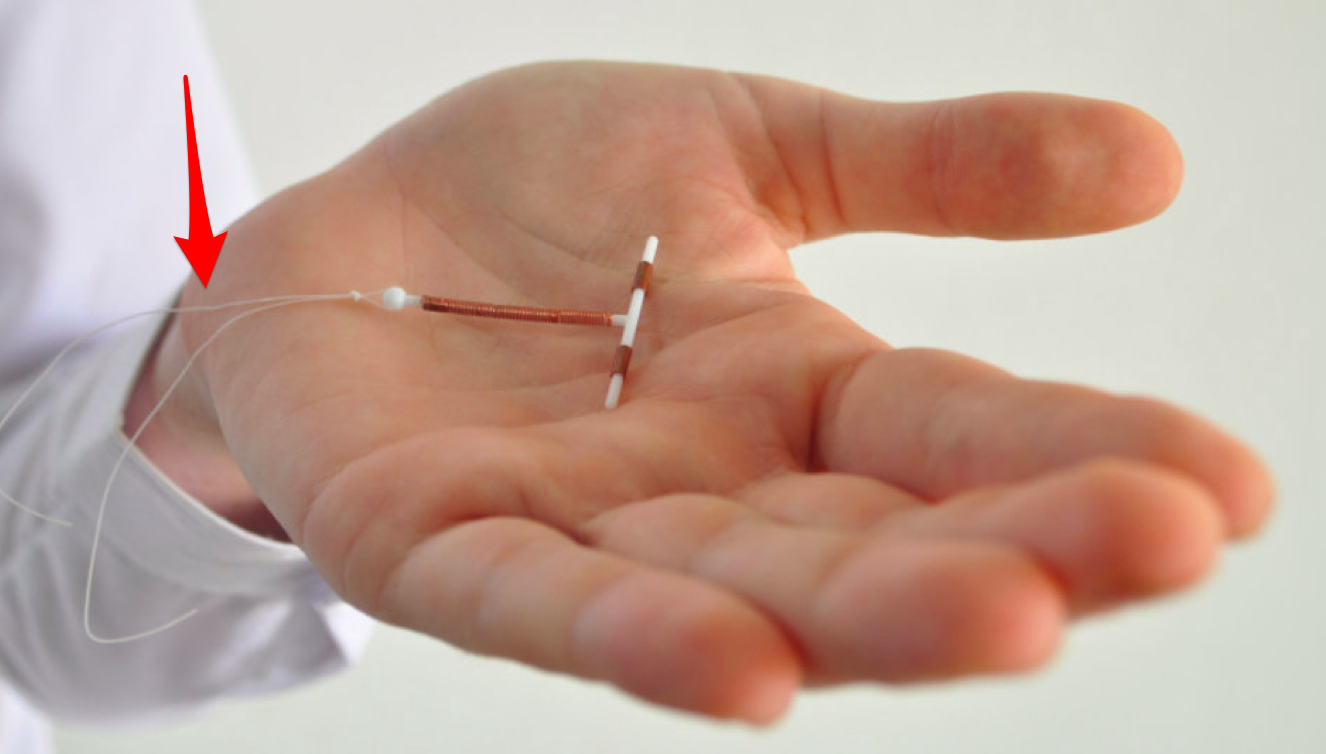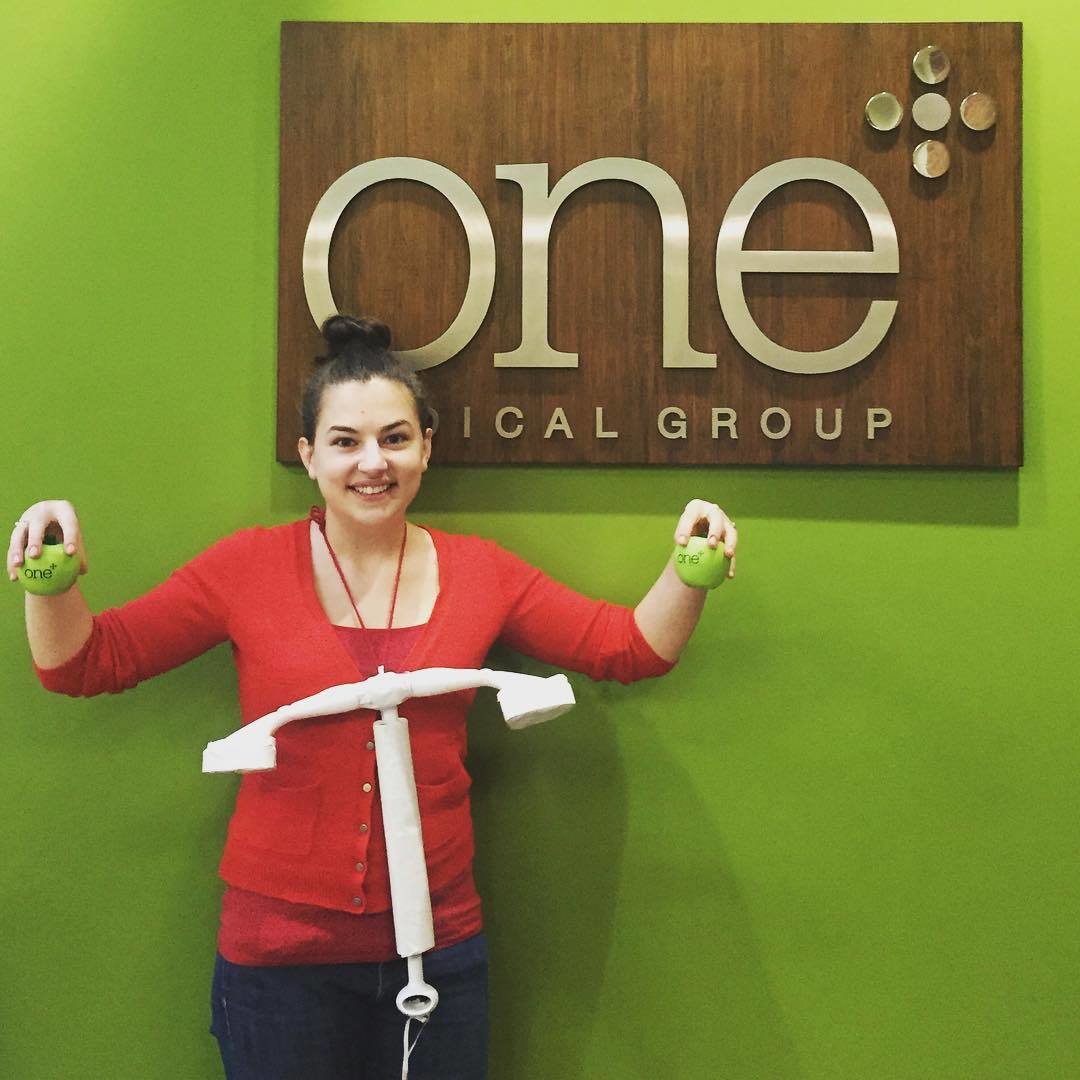I am not one of those women. After nine years on the pill, I decided to switch to an IUD. I’ll admit, the main reason it appealed to me is that it would mean I might not get my period anymore. I’ve had a great relationship with oral contraceptives for almost a decade, and remembering to take it was no problem for me. Still, the idea of taking my reproductive health into my own hands like this seemed empowering, and I wanted to try it. I was completely unprepared for what came next. Here are a few things my gynecologist didn’t tell me about the IUD that everyone should know — and which, if I had, would have actually stopped me from getting one in the first place: Maybe some women really do experience what feels like “really bad period cramps,” but for me it felt like someone shot my uterus full of shrapnel. I have a really high pain tolerance — you’re talking to someone with tattoos, someone who had wisdom teeth removed with nothing but novocaine. But on a 10-point scale this was somewhere between an 8 and a 9. After about 10 minutes of excruciating pain, my gynecologist withdrew the speculum and passed me a box of tissues (for my eyes). “I know,” she said apologetically, “it’s like giving birth.” Thanks for the heads up. At my doctor’s suggestion I did take about 600 mg of ibuprofen before my appointment, but a lot of good that did me. For some women — and yes, it’s rare — the IUD can move, or even just come right out. Checking the strings ensures that it’s still there, in the right place, preventing pregnancy. You shouldn’t be able to feel any plastic. That’s bad. But you could still get pregnant, especially if it moves or comes out without you knowing (again, check the strings!). My gynecologist didn’t tell me about doing self-checks, but my friend did. Her practitioner didn’t tell her either, so she didn’t know when it moved — and resulted in a pregnancy. Worse, pregnancies with an IUD in are more often ectopic pregnancies — i.e., a pregnancy outside the uterus, which can be extremely dangerous. So, yeah. Good to know. And maybe I have a really small uterus, I don’t know. What I do know is that my doctor had such a hard time getting it in that she had to call in a colleague to help guide her with an ultrasound. No wonder the fucking thing hurt so much. I’ve never given birth — and I doubt my insurance would cover the cost of the IUD if I were to try to DIY it — but it’s good to know that this could be an option. Not that it would make me want to do it again. What do you wish your gyno had told you about the IUD? Tell us in the comments, or on Facebook!


![]()
title: “What Your Gynecologist Doesn T Tell You About The Iud” ShowToc: true date: “2024-10-21” author: “James Reinhardt”
I am not one of those women. After nine years on the pill, I decided to switch to an IUD. I’ll admit, the main reason it appealed to me is that it would mean I might not get my period anymore. I’ve had a great relationship with oral contraceptives for almost a decade, and remembering to take it was no problem for me. Still, the idea of taking my reproductive health into my own hands like this seemed empowering, and I wanted to try it. I was completely unprepared for what came next. Here are a few things my gynecologist didn’t tell me about the IUD that everyone should know — and which, if I had, would have actually stopped me from getting one in the first place: Maybe some women really do experience what feels like “really bad period cramps,” but for me it felt like someone shot my uterus full of shrapnel. I have a really high pain tolerance — you’re talking to someone with tattoos, someone who had wisdom teeth removed with nothing but novocaine. But on a 10-point scale this was somewhere between an 8 and a 9. After about 10 minutes of excruciating pain, my gynecologist withdrew the speculum and passed me a box of tissues (for my eyes). “I know,” she said apologetically, “it’s like giving birth.” Thanks for the heads up. At my doctor’s suggestion I did take about 600 mg of ibuprofen before my appointment, but a lot of good that did me. For some women — and yes, it’s rare — the IUD can move, or even just come right out. Checking the strings ensures that it’s still there, in the right place, preventing pregnancy. You shouldn’t be able to feel any plastic. That’s bad. But you could still get pregnant, especially if it moves or comes out without you knowing (again, check the strings!). My gynecologist didn’t tell me about doing self-checks, but my friend did. Her practitioner didn’t tell her either, so she didn’t know when it moved — and resulted in a pregnancy. Worse, pregnancies with an IUD in are more often ectopic pregnancies — i.e., a pregnancy outside the uterus, which can be extremely dangerous. So, yeah. Good to know. And maybe I have a really small uterus, I don’t know. What I do know is that my doctor had such a hard time getting it in that she had to call in a colleague to help guide her with an ultrasound. No wonder the fucking thing hurt so much. I’ve never given birth — and I doubt my insurance would cover the cost of the IUD if I were to try to DIY it — but it’s good to know that this could be an option. Not that it would make me want to do it again. What do you wish your gyno had told you about the IUD? Tell us in the comments, or on Facebook!


![]()
title: “What Your Gynecologist Doesn T Tell You About The Iud” ShowToc: true date: “2024-10-22” author: “Mary Young”
I am not one of those women. After nine years on the pill, I decided to switch to an IUD. I’ll admit, the main reason it appealed to me is that it would mean I might not get my period anymore. I’ve had a great relationship with oral contraceptives for almost a decade, and remembering to take it was no problem for me. Still, the idea of taking my reproductive health into my own hands like this seemed empowering, and I wanted to try it. I was completely unprepared for what came next. Here are a few things my gynecologist didn’t tell me about the IUD that everyone should know — and which, if I had, would have actually stopped me from getting one in the first place: Maybe some women really do experience what feels like “really bad period cramps,” but for me it felt like someone shot my uterus full of shrapnel. I have a really high pain tolerance — you’re talking to someone with tattoos, someone who had wisdom teeth removed with nothing but novocaine. But on a 10-point scale this was somewhere between an 8 and a 9. After about 10 minutes of excruciating pain, my gynecologist withdrew the speculum and passed me a box of tissues (for my eyes). “I know,” she said apologetically, “it’s like giving birth.” Thanks for the heads up. At my doctor’s suggestion I did take about 600 mg of ibuprofen before my appointment, but a lot of good that did me. For some women — and yes, it’s rare — the IUD can move, or even just come right out. Checking the strings ensures that it’s still there, in the right place, preventing pregnancy. You shouldn’t be able to feel any plastic. That’s bad. But you could still get pregnant, especially if it moves or comes out without you knowing (again, check the strings!). My gynecologist didn’t tell me about doing self-checks, but my friend did. Her practitioner didn’t tell her either, so she didn’t know when it moved — and resulted in a pregnancy. Worse, pregnancies with an IUD in are more often ectopic pregnancies — i.e., a pregnancy outside the uterus, which can be extremely dangerous. So, yeah. Good to know. And maybe I have a really small uterus, I don’t know. What I do know is that my doctor had such a hard time getting it in that she had to call in a colleague to help guide her with an ultrasound. No wonder the fucking thing hurt so much. I’ve never given birth — and I doubt my insurance would cover the cost of the IUD if I were to try to DIY it — but it’s good to know that this could be an option. Not that it would make me want to do it again. What do you wish your gyno had told you about the IUD? Tell us in the comments, or on Facebook!


![]()